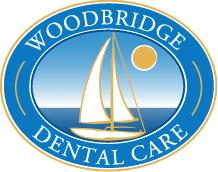The lack of good oral hygiene can contribute to an increase in tooth decay and cavities among children and adults alike. It is directly related to the need for fillings and oftentimes more expensive treatments such as dental implants, crowns, and bridges.
The importance of preventative dentistry
In addition to adversely affecting your oral health, poor oral hygiene can also contribute to chronic diseases such as cardiovascular disease, diabetes, and recurrent respiratory infections. The prevention of oral disease has a direct correlation with the prevention of serious health complications in the future. An inflammatory condition within the gums, as well as the toxins it releases, can have an adverse effect on the gums and bone, which can then spread to other parts of the body. With the help of our dental office, advanced dental issues can be detected before they occur, and we are able to strengthen, preserve, and improve the function of your teeth.
What is the effect of oral hygiene on your health?
There is a strong correlation between dental diseases and overall health. You may experience deterioration in your general health due to ongoing oral disease. To minimize the need for reconstructive dental procedures and health issues later in life, we recommend biannual oral hygiene appointments.
What causes dental problems?
A high intake of alcohol, sugar, refined foods, and smoking is associated with dental disease. Sugar is more prevalent in our diets today than ever before, resulting in an increase in tooth decay. In particular, sugar causes decay in young children’s primary teeth, which makes them more susceptible to oral disease as adults.
How Can I Take Care of My Teeth?
Sealants for children and adults
A fissure sealant can protect teeth from tooth decay and reduce the need for replacement of missing teeth or restorations in natural teeth. A dental sealant is a thin, protective coating applied to the teeth in order to prevent dental problems in the future. In spite of the fact that dental sealants are usually recommended for children, adults may also benefit from them.
The best way to maintain good oral hygiene
It is essential to visit your dentist at least twice a year and have your teeth professionally cleaned in order to prevent tartar build-up and prevent dental disease later in life. A healthy lifestyle includes brushing twice a day, flossing, reducing alcohol intake, quitting smoking, and eating a well-balanced diet. When you take care of yourself, you benefit your overall well-being as well, resulting in strong teeth and a healthy body for a lifetime.
What is preventative dental care?
Preventative dental care begins with learning proper oral hygiene. The importance of maintaining your teeth for a lifetime with minimal intervention cannot be overstated. In addition to reducing your risk of tooth decay and gum disease, preventative dental care can help you maintain your natural teeth throughout your life.
It’s never too late or too early to start a good oral hygiene routine. Our Woodbridge VA dentist can assist you in establishing good oral hygiene habits that will lead to a lifetime of healthy smiles. Contact Woodbridge Dental Care today to schedule an appointment.















